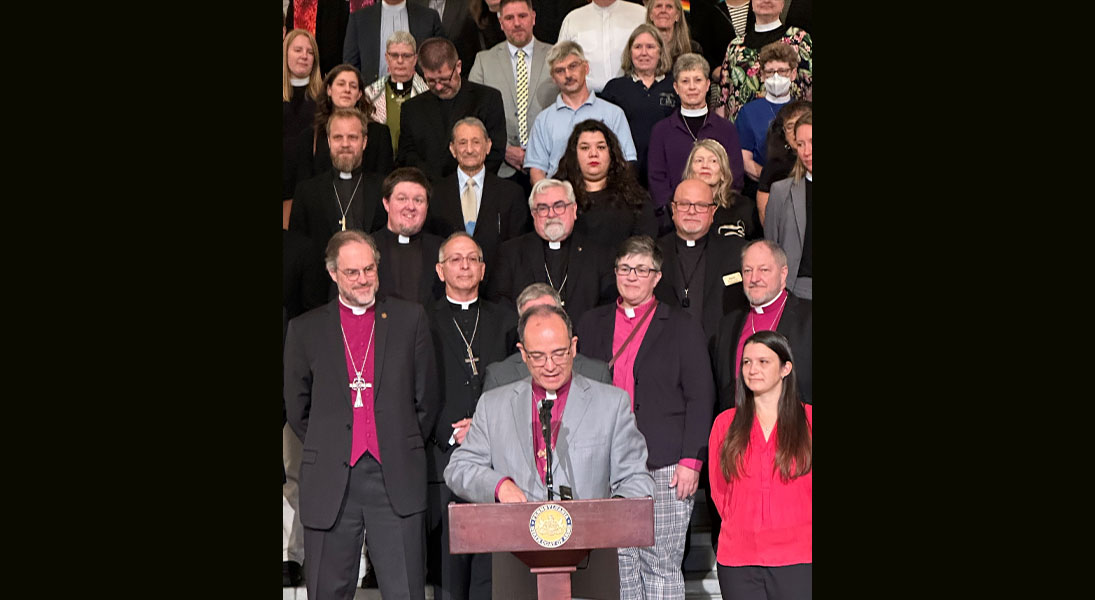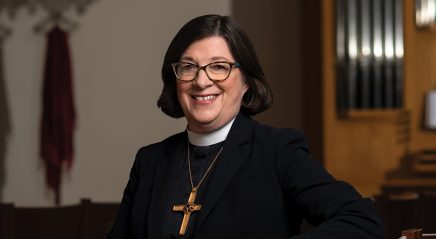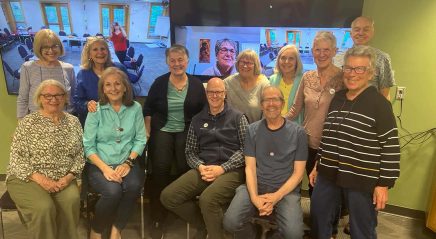Earlier this year the ELCA bishops in Pennsylvania knew they needed to do something. Called to shepherd God’s people in a swing state during an already contentious election, all seven felt the deep responsibility to use their voices and authority to speak words of peace—to their pastors who are leading congregations with deep divisions, to their lay members who are feeling pulled in multiple directions by dangerous rhetoric and misinformation, and to the people of the commonwealth who increasingly feel that there is less and less they hold in common.
Discernment about what that “something” could and should be was well underway when a gunman attempted to assassinate former President Donald Trump at a July rally in Butler, Pa., killing an audience member and injuring Trump and others present. The bishops felt then that they had to act for peace.
Working together across synod boundaries, and with coordination from their ELCA-affiliated state public policy office, Lutheran Advocacy Ministry in Pennsylvania (LAMPa), the bishops wrote and circulated a joint ecumenical and interreligious statement, “Choices and Voices for Peace.” They called on the rostered ministers in their synods to add their names and invited their ecumenical and interreligious colleagues to join as well. By the Sept. 5 deadline, over 330 signatories had joined, representing over 3 million Pennsylvanians from a variety of faith traditions.
The statement read, in part:
“Two months from today, Pennsylvanians will head to the polls. The choices we make there will be a statement about the way we want to live together here and now and the kind of tomorrow we want to leave for our children. We gather here as leaders of many faiths from communities all across the Commonwealth not to tell anyone how to vote on November 5th — but to remind us all of the transformative power in the daily choice to treat one another with kindness and human dignity. …
“Violence is a language of despair; we stand together today because we want to speak in the language of hope. We acknowledge that we as people of various religions and worldviews are not immune to division. We confess our histories with political and societal violence — acts of omission, commission, compliance and collaboration. We struggle still. Yet, today, we commit ourselves to dialogue over division. To speak with a hope that is faithful to our traditions, recognizing that peace is not passive, but an active pursuit. One that requires courage.”
On Sept. 5, approximately 100 of those faith leaders joined the bishops at the Capitol building in Harrisburg, filling the steps in the main rotunda, as the statement was read at a press conference and delivered to lawmakers. The group then gathered at nearby Grace United Methodist Church for food and fellowship, and to learn about Love Anyway Feasts from organizing partner Common Ground-USA. It was a “visible and tangible example of the peace we are proclaiming,” said Bryan Penman, bishop of the Southeastern Pennsylvania Synod. The bishops have expressed hope that that this will not be simply one press conference and lunch, but rather the beginnings of a robust movement of peace in Pennsylvania and beyond.
The initial statement remains open for all Pennsylvanians to add their names and has now accumulated over 380 signatures.
We thank Erin Jones, LAMPa communications and advocacy engagement manager, for this report.









